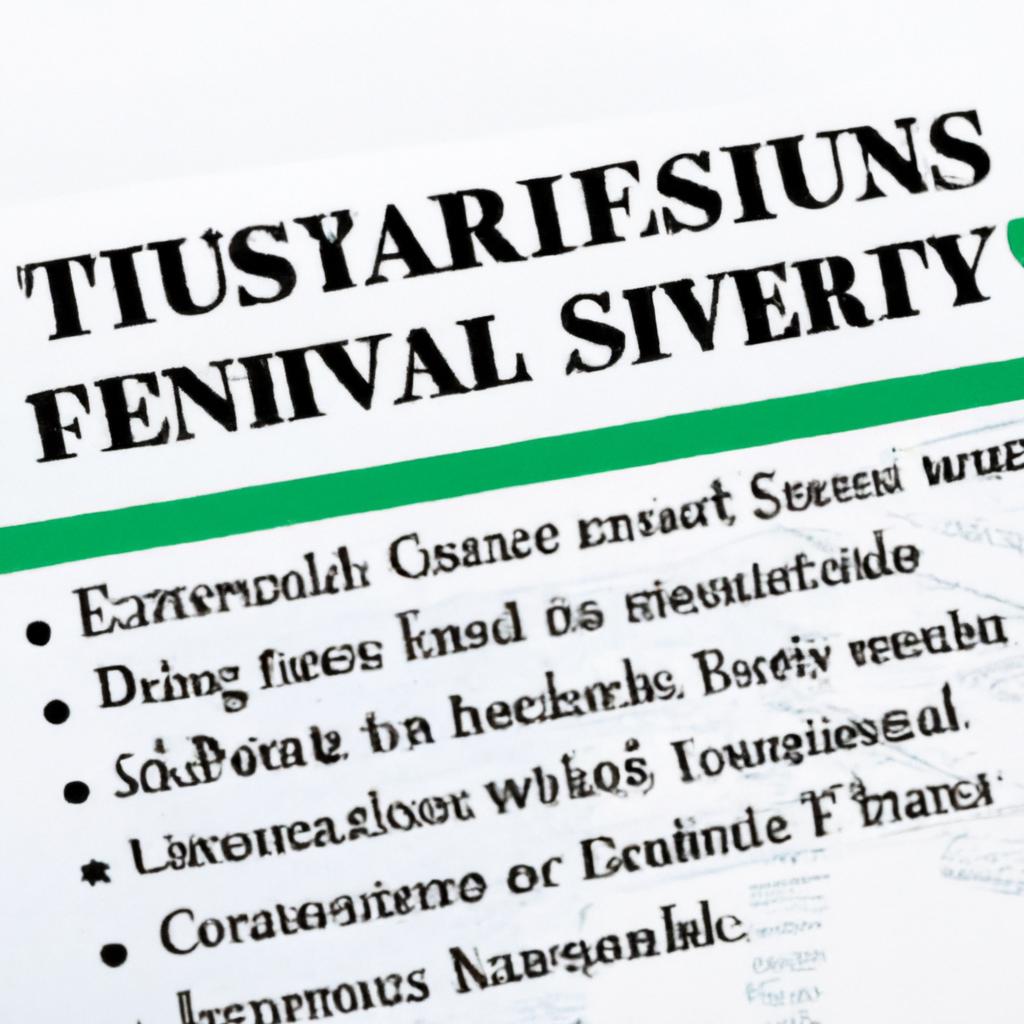Navigating the complex landscape of estate planning requires a keen understanding of the various tools and strategies available to protect and distribute assets. One such tool often utilized in safeguarding assets for beneficiaries is the survivorship trust. As experienced lawyers at Morgan Legal Group in New York City, we specialize in guiding individuals through the intricacies of establishing survivorship trusts to ensure their financial legacies are secured and their loved ones are provided for. In this article, we will delve into the fundamentals of survivorship trusts and how they can benefit you and your beneficiaries.
Understanding Survivorship Trusts in Estate Planning
Survivorship trusts, also known as joint trusts, are a commonly used tool in estate planning to manage assets for couples. These trusts are established by spouses or partners, allowing them to manage and control their assets jointly during their lifetime. Upon the death of one partner, the surviving partner retains control of the trust assets, ensuring that the assets are seamlessly transferred without the need for probate.
One of the key benefits of survivorship trusts is their ability to provide uninterrupted asset management and protection for the surviving partner. By avoiding probate, these trusts can help prevent delays and added costs associated with the distribution of assets. Additionally, survivorship trusts can also offer privacy, as the details of the trust do not become public record like probate proceedings. This can be particularly beneficial for those who wish to keep their estate affairs confidential.

Key Benefits of Incorporating a Survivorship Trust in Your Estate Plan
Maximizing Inheritance: A survivorship trust allows for the seamless transfer of assets to your designated beneficiaries upon the passing of the second spouse or partner. By avoiding the probate process, your loved ones can receive their inheritance promptly and efficiently, without the delays and costs associated with probate court.
Asset Protection: With a survivorship trust, you can protect your assets from creditors and lawsuits. By structuring your estate plan in this way, you can ensure that your hard-earned assets are preserved for your beneficiaries and not subject to potential creditors of the surviving spouse.

Factors to Consider When Setting Up a Survivorship Trust
When setting up a survivorship trust, there are several important factors that must be carefully considered to ensure the proper execution of this estate planning tool. One key factor to keep in mind is the selection of the trustees who will oversee the trust after the passing of the initial grantor. It is crucial to choose individuals who are trustworthy, reliable, and have the financial acumen to manage the assets in the trust effectively.
Another critical factor to consider is the distribution of assets within the survivorship trust. It is essential to clearly outline the terms and conditions under which the assets will be distributed to the beneficiaries. This includes specifying how and when the beneficiaries will receive their inheritances, as well as any restrictions or conditions that may apply. By carefully considering these factors and working with experienced estate planning professionals, you can ensure that your survivorship trust is set up in a way that aligns with your wishes and provides for the financial well-being of your loved ones.
| Factors to Consider | Importance |
|---|---|
| Selection of Trustees | Crucial |
| Distribution of Assets | Essential |

Navigating Legal Requirements and Tax Implications of Survivorship Trusts
When it comes to navigating the legal requirements and tax implications of survivorship trusts, it is crucial to understand the complexities involved in creating and managing such a trust. A survivorship trust, also known as a joint trust or a living trust, is a legal entity that allows two individuals (usually spouses) to pass on their assets to their beneficiaries upon the death of both parties. This type of trust can be an effective tool for managing assets, reducing estate taxes, and avoiding probate.
One of the key considerations when establishing a survivorship trust is ensuring that it complies with all relevant state laws and regulations. This includes drafting the trust document in accordance with state requirements, naming appropriate trustees and beneficiaries, and ensuring that the trust is properly funded. Additionally, understanding the tax implications of a survivorship trust is essential in order to maximize tax benefits and minimize potential liabilities. Working with an experienced estate planning attorney can help ensure that your survivorship trust is structured in a way that meets your specific needs and goals.
Q&A
Q: What is a survivorship trust?
A: A survivorship trust is a type of trust that is formed by couples, typically married, to ensure that their assets are managed and distributed according to their wishes after one spouse passes away.
Q: How does a survivorship trust work?
A: In a survivorship trust, the couple will establish the trust together and both contribute assets to it. When one spouse passes away, the surviving spouse retains control of the trust and its assets, but they are typically limited in how they can use or distribute the assets.
Q: What are the benefits of a survivorship trust?
A: A survivorship trust can provide several benefits, including avoiding probate, ensuring that assets are passed on to beneficiaries efficiently, and providing certain tax advantages.
Q: Who can benefit from a survivorship trust?
A: Couples who want to ensure that their assets are managed and distributed smoothly after one spouse passes away can benefit from a survivorship trust. This type of trust is also useful for couples with children or other beneficiaries they want to provide for.
Q: Are there any drawbacks to creating a survivorship trust?
A: While survivorship trusts can offer many benefits, they can also be complex to set up and maintain. Additionally, some couples may find that other estate planning tools better suit their needs.
Q: How can someone create a survivorship trust?
A: To create a survivorship trust, couples should consult with an estate planning attorney to determine if it is the right option for them. The attorney can help draft the trust document and ensure that all legal requirements are met.
Concluding Remarks
In conclusion, a survivorship trust can provide peace of mind and financial security for loved ones after you pass away. By establishing this type of trust, you can ensure that your assets are protected and distributed in accordance with your wishes. It offers a unique way to pass on your wealth to future generations and can be a valuable tool in estate planning. Consider discussing survivorship trust options with a legal professional to determine if it is the right choice for you and your family. Embrace the opportunity to secure a lasting legacy and provide for your loved ones with a survivorship trust.
 Survivorship Trust: Protecting Your Legacy for Generations to Come
Survivorship Trust: Protecting Your Legacy for Generations to Come
In this fast-paced world, financial planning has become an essential aspect for individuals and families to secure their future and protect their hard-earned wealth. One common method used for estate planning is the creation of trusts. Trusts provide a plethora of advantages such as avoiding probate, minimizing estate taxes, and ensuring proper asset distribution. However, not all trusts are created equally. One particular type of trust that offers unique benefits and added security is the survivorship trust. In this article, we will delve into the concept of survivorship trust, its benefits, and practical tips for creating and managing one.
What is a Survivorship Trust?
A survivorship trust, also known as a second-to-die trust, is designed to benefit two or more individuals, commonly spouses, and typically takes effect when the first spouse passes away. This type of trust is often used as a part of estate planning to ensure that assets and wealth are protected for future generations. In simple terms, it is a trust that extends beyond the life of the first beneficiary and continues to provide for the surviving beneficiaries.
How Does a Survivorship Trust Work?
Typically, when one spouse passes away, the surviving spouse assumes control of the jointly-owned assets. However, with a survivorship trust in place, the assets are transferred into the trust after the death of the first beneficiary, and the trust continues to hold and manage the assets for the benefit of the surviving spouse and other beneficiaries.
The trust is created during the lifetime of the individuals, and it becomes irrevocable at the death of the first spouse, meaning that it cannot be changed. The trust can specify how the assets are distributed among the beneficiaries and may also include provisions for the care of any minor children or dependents.
Benefits of Survivorship Trust
1. Protection from Creditors and Lawsuits
One of the biggest advantages of a survivorship trust is protection from creditors. As the assets are no longer owned by the beneficiaries, they cannot be seized by creditors in case of any potential lawsuits or financial trouble. This feature is particularly useful for individuals who may be at risk of lawsuits, such as business owners or medical professionals.
2. Minimizes Estate Taxes
Survivorship trusts are often used as a tax-planning tool to minimize estate taxes. When the first spouse passes away, their assets are transferred to the trust, and the surviving spouse is not taxed on the inheritance. This delay allows the surviving spouse to use up their own estate tax exemption, and the combined wealth of the couple is only subject to estate taxes once the surviving spouse passes away.
3. Ensures Proper Asset Distribution
A survivorship trust allows the grantor to specify how the assets are to be distributed among the beneficiaries. This feature is particularly useful for blended families, where there may be children from previous marriages. The trust can ensure that all children are provided for, without one spouse inadvertently disinheriting the other’s children.
Practical Tips for Creating and Managing a Survivorship Trust
1. Seek Professional Guidance
Before creating a survivorship trust, it is advisable to consult with a financial planner or an attorney experienced in trust and estate planning. They can provide valuable guidance and ensure that the trust is structured in a way that aligns with your goals and objectives.
2. Choose a Trusted Trustee
Selecting a trustee is a crucial decision when creating a survivorship trust. The trustee is responsible for managing and distributing the trust assets according to the grantor’s wishes. It is essential to choose a trustee who is trustworthy, competent, and able to make sound financial decisions.
3. Review and Update Regularly
Life circumstances and laws are constantly changing, and it is vital to review and update your survivorship trust periodically. Regular reviews, at least every five years, can ensure that the trust remains up-to-date and reflects any changes in your financial situation or family structure.
Case Study: The Benefits of a Survivorship Trust
Let’s consider an example of John and Sarah, a married couple with two children. They created a survivorship trust, and their assets are transferred to the trust after the death of the first spouse. As a result, Sarah becomes the sole beneficiary of the trust and has control over the assets. When Sarah passes away, the trust’s assets are distributed among their two children without any probate or estate tax concerns.
First-hand Experience: The Importance of Estate Planning
I recently lost a loved one without a proper estate plan in place, and it left me struggling to manage their assets and distribute them among the heirs. This firsthand experience has highlighted the importance of estate planning and the need for a survivorship trust to protect family wealth and ensure a smooth distribution of assets.
Conclusion
A survivorship trust offers significant advantages, making it a valuable tool for estate planning. The added protection from creditors, tax benefits, and flexibility in asset distribution make it a popular option for individuals and families. However, it is crucial to consult with a financial planner or attorney before creating a trust, and regular reviews are necessary to ensure that the trust remains relevant and effective. With careful planning and professional guidance, a survivorship trust can provide peace of mind and secure your legacy for generations to come.

